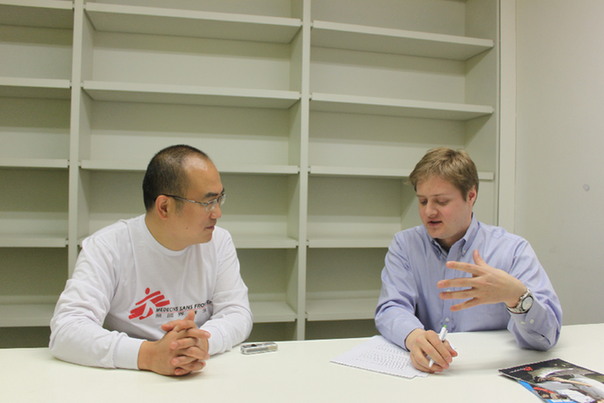In war-torn Pakistan, Wuhan doctor makes a difference
 |
|
Dr. Zhang Dingyu (L) talks to China.org.cn staff reporter Corey Cooper (R). |
Zhang and the other doctors had reason to be wary of the mother's chances for survival. Complications from childbirth are the leading killer of Pakistani women. According to a 2007 study conducted by ICF International and USAID, one in 89 Pakistani women will die of maternal causes. Although three out of five women receive some prenatal care from a health provider, only 25 percent have been educated about pregnancy complications. Common killers include obstetric bleeding (responsible for one-third of all maternal deaths) and postpartum infections, the study said.
Back at the hospital, the on-site obstetrician, who was from Japan, performed an emergency Caesarean section, safely delivering a baby girl. But the newborn had stopped breathing and needed CPR. After a tense few minutes, the infant's breathing resumed. Both mother and daughter survived. The emergency rescue, tense as it was, had become routine work for the MSF team.
"In China, maybe I saw one case of hypertension or hemorrhaging [among pregnant women] in several years, but at the medical camp in Timergarah, every week we had one or two cases," Zhang said.
 0
0 







Go to Forum >>0 Comments